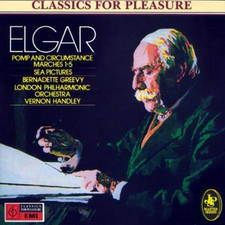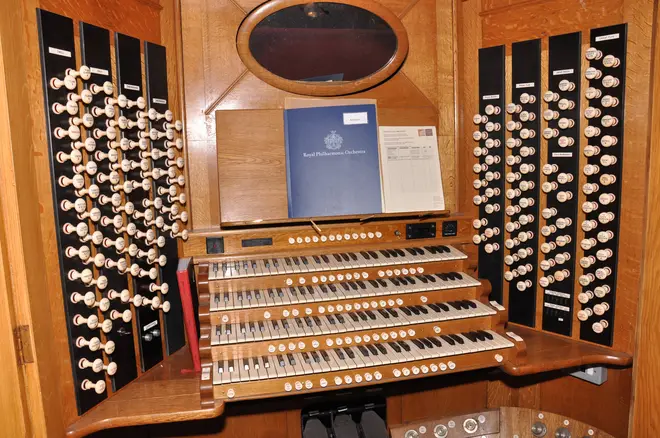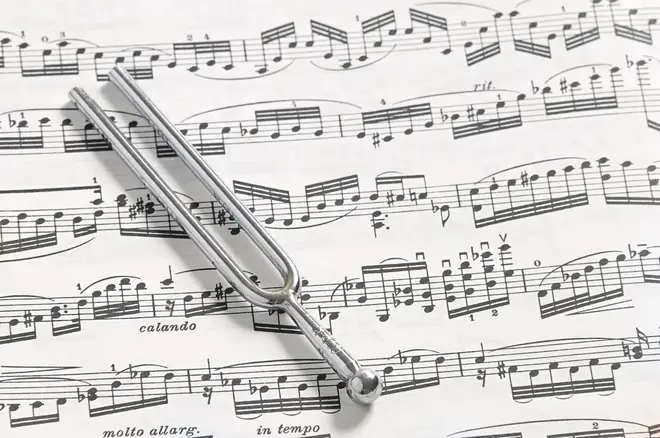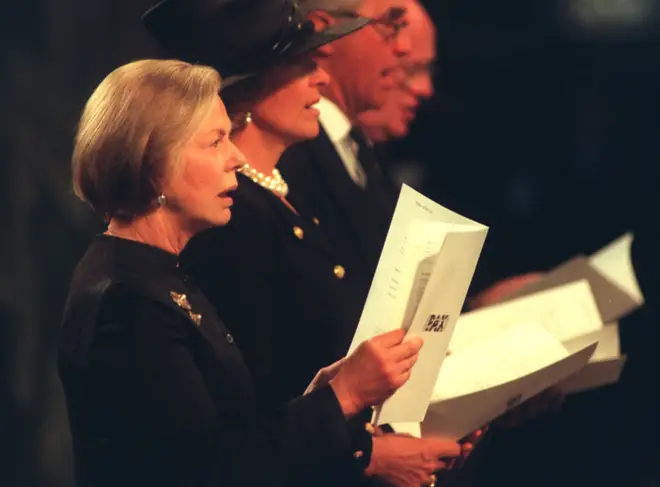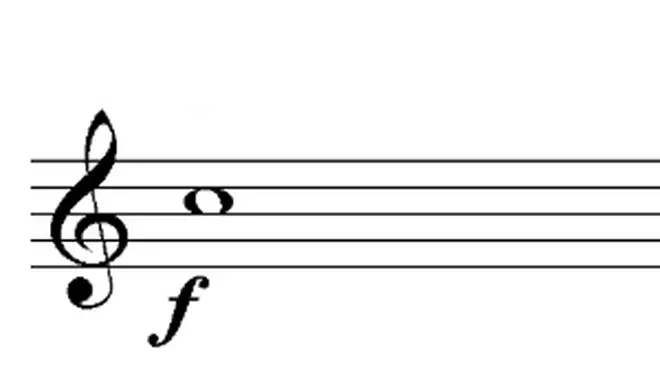21 common expressions that are based on music
17 September 2018, 17:41 | Updated: 5 February 2019, 14:00
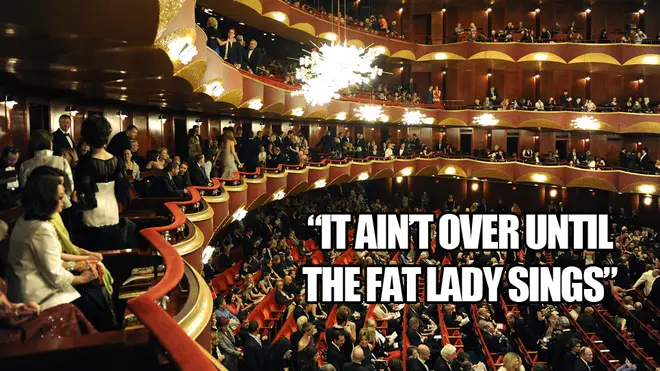
Blowing your own trumpet, preaching to the choir… a surprising number of everyday phrases have their origins in music.
-
Pull out all the stops
Organ stops. Picture: Getty ‘Pulling out all the stops’ – going all out, or giving your all – originally referred to organ stops, which are pulled out to turn on each set of sounds in a pipe organ. When they are all pulled out, the instrument can be played at its maximum volume.
-
Preaching to the choir
via GIPHY ‘Preaching to the choir’ means pointlessly trying to convince someone of an opinion they already agree with. It comes from the action of trying to convince people to come to church, who already regularly attend.
-
Blowing your own trumpet
via GIPHY ‘Blowing your own trumpet’ or ‘tooting your own horn’ (meaning ‘to brag’) could come from the medieval period, when heralds would announce the arrival of a VIP with a fanfare. Of course, if you weren't a VIP you would have to… blow your own trumpet.
-
Like a broken record
via GIPHY This expression is used to describe a person who repeatedly says the same thing. And it has its origins in the world of vinyl – when a record is scratched the needle of the record player gets stuck in the same spot and plays the same section of the song over and over.
-
Music to my ears
via GIPHY If something is music to your ears, you’re pretty pleased about it – like the feeling you get when you hear anything by Bach.
-
Change your tune
Tuning fork. Picture: Getty Its origins are unclear, but ‘changing your tune’ is another way of saying that somebody has changed (or should change) their opinion on something.
-
It strikes a chord
via GIPHY If something strikes a chord, you feel personally affected by it. Apparently, its meaning comes from the action of playing a note on the piano, causing the string itself and, crucially, others around it, to vibrate.
-
Singing from the same hymn sheet
Singing hymns. Picture: PA Two people singing from the same song sheet are, simply put, saying the same thing. It comes from church congregations, who all sing the same music.
-
Don’t harp on about it
‘Harping on’ about something means you won’t stop talking about it. It’s actually a shortening of the phrase ‘harp on the same string’, first recorded in 1518, which means ‘to play the same note over and over’.
-
All that jazz
via GIPHY No one's quite sure where this phrase comes from. But the word ‘jazz’ was sometimes used, in the early 20th century, to mean ‘meaningless talk’, so perhaps it's like saying 'and all that nonesense'.
-
Playing second fiddle
via GIPHY Drawing on the pains of being a second violinist, ‘playing second fiddle’ means that you’re playing a supporting role to someone else.
-
Beat the band
via GIPHY If you’re shouting to beat the band, you’re talking loudly so you can be heard over the music.
-
All the bells and whistles
Bells and whistles. Picture: Getty This phrase describes the extra, non-essential trimmings that go with an item. The expression itself is thought to have come from the ornate theatre organs that were used in early cinemas.
-
March to the beat of your own drum
via GIPHY Picture someone marching in a parade, but out of sync with the rest of the group. That's what this phrase refers to. If you march to the beat of your own drum, you like doing your own thing.
-
Fit as a fiddle
via GIPHY ‘Fiddle’ is still recognised as a colloquial name for the violin – but the meaning of ‘fit’ has changed. When the phrase was coined, it was used to mean ‘suitable’ or ‘fit for use’. Now, it just means that you’re in good health.
-
The same old song and dance
via GIPHY It’s another way of saying ‘nothing out of the ordinary’ or ‘the same as always’ – but with a musical twist.
-
It’s not my forte
Forte. Picture: IMSLP In music, forte literally means ‘loud’ or ‘strong’. So if something isn’t your forte, it’s probably not your greatest strength.
-
Play it by ear
via GIPHY Figuratively, playing something by ear means to act spontaneously. Literally, it refers to a musician playing a piece of music without looking at the sheet music.
-
It rings a bell
via GIPHY Bells are usually sounded to remind us to do things, like the timer on your oven (your cake's about to burn) or a school bell (to go to your next lesson). If something ‘rings a bell’, it therefore causes you to remember something.
-
It ain’t over until the fat lady sings
via GIPHY It’s a phrase used to warn against assuming the outcome of an event which is still in progress – and it comes from the stereotypical image of overweight sopranos in opera. Experts disagree over who first said the phrase, and where it comes from - but it could have been inspired by Richard Wagner's Ring cycle. At the very end of the four-part epic, the Valkyrie Brünnhilde closes the monumental work with a dramatic aria.
-
Strike the right note
via GIPHY To hit, or strike, the right note means to do something in exactly the right way. Its origins, although unknown, are generally assumed to be musical.
You can also strike the wrong note, meaning to do something in completely the wrong way.
via GIPHY
